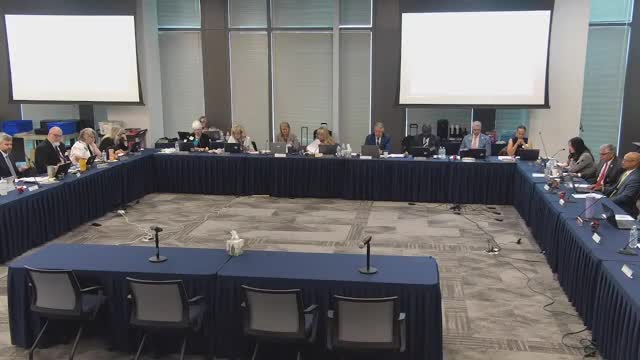Texas Board of Nursing approves Sam Houston State SNAPI pilot to recruit bedside nurses into clinical teaching roles
Get AI-powered insights, summaries, and transcripts
Subscribe
Summary
The Texas Board of Nursing voted to approve Sam Houston State University's Shared Nurse Academic Practice Partnership Initiative (SNAPI) pilot, a model that buys out bedside nurses' time so they can teach clinical students while retaining full-time hospital employment and pay.
The Texas Board of Nursing on Oct. 23 approved an innovative pilot from Sam Houston State University that aims to expand clinical teaching capacity by contracting with hospitals to “buy out” bedside nurses’ time so those nurses can serve as clinical instructors without losing pay or benefits.
Sam Houston’s Shared Nurse Academic Practice Partnership Initiative — SNAPI — proposes a contractual model in which hospitals preserve a nurse’s full-time employment and compensation while allocating a portion of that nurse’s schedule to clinical instruction. The university and participating health systems would coordinate onboarding, course orientation and mentorship for SNAPI RNs; the pilot will collect outcome data to assess whether the model increases clinical capacity in rural and underserved regions.
“SNAPI is a functional contractual framework that allows a bedside nurse to teach prelicensure students through a time buyout arrangement,” Devin Berry, director of Sam Houston State University School of Nursing, told the board. He said SNAPI was developed after two years of partnership work with Houston-area health systems, a nursing-technology company and a consulting firm and was supported by grants and a recent $100,000 private gift.
Co-director Desha Johnson Mackeya told the board that the pilot’s target includes rural West and North Texas regions, where workforce data show acute shortages of master’s-prepared nursing faculty. She cited 2024 Texas Health Professions Resource Center findings — discussed during the presentation — showing many counties in the West Region have eight or fewer master’s-prepared nurses, a barrier to clinical placements and program expansion.
Sam Houston representatives described a multi-step selection and onboarding process for SNAPI RNs: hospital interviews, School of Nursing interviews, joint selection, a 12‑hour “preceptor boot camp” led by national faculty, course-level orientations, paired observation and weekly onsite mentorship during the first semester. The presenters said the model preserves the nurse’s total workload at 1.0 full-time equivalent by combining clinical shifts with agreed academic hours (the feasibility study used a 12‑hour clinical shift plus about 4 academic hours for grading and course work).
Board members asked about sustainability after initial grant funding. Berry said the current grant period runs through February 2027 and the pilot team is actively seeking long-term funding partnerships, noting interest from a large Houston system and possible state or federal grant streams. Board members and staff recommended coordinating with the Texas Higher Education Coordinating Board and other statewide stakeholders as the project scales.
The board’s motion to approve the pilot application (to begin spring 2026) was moved by Allison Porter Edwards and seconded by Drew Riddle; the motion passed during the meeting.
The board ordered that approval be subject to the requirements and conditions listed in Sam Houston’s submitted application and an attached board order, which will be enforced through the board’s usual program monitoring processes. Sam Houston was directed to return with implementation details and outcome data as required by the conditions of the pilot approval.
Why it matters: Nursing schools report that clinical faculty shortages are one of the principal constraints on increasing prelicensure class sizes. SNAPI is designed to expand teaching capacity by using experienced bedside nurses as clinical instructors while maintaining their hospital employment and compensation, and the board’s approval permits a statewide demonstration that will prioritize rural and underserved regions.
What’s next: Sam Houston will begin the pilot in spring 2026, collect outcome data during the grant period and report results back to the board; board staff said they will monitor compliance with the pilot’s conditions and the Sam Houston application.
